A bright idea?
The big players merge with or acquire local brands, then aggressively lobby politicians to restrict (or even prohibit) competition from independent businesses.

Select Page

...there solely to promote an impulse purchase of something the viewer doesn’t actually need or want. In this case, a return to drug use.
Posted by C. Scott McMillin | Jul 17, 2025 | People in Recovery | 0 |
Related to addiction and the brain, craving, maintaining sobriety
by C. Scott McMillin | Jul 14, 2025 | 0 |
The big players merge with or acquire local brands, then aggressively lobby politicians to restrict (or even prohibit) competition from independent businesses.

by C. Scott McMillin | Jun 26, 2025 | 0 |

by C. Scott McMillin | Jun 19, 2025 | 0 |

by C. Scott McMillin | Jun 16, 2025 | 0 |

by C. Scott McMillin | Jun 2, 2025 | 0 |
by C. Scott McMillin | Jun 26, 2025 | 0 |
...simply holding up a sheet of paper with numbers purporting to be the results of a drug test, may possibly be the least reliable way to demonstrate continuing abstinence from drug use.

by C. Scott McMillin | Jun 19, 2025 | 0 |
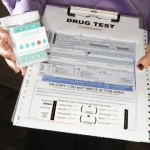
by C. Scott McMillin | Apr 28, 2025 | 0 |

by C. Scott McMillin | Apr 14, 2025 | 0 |

by C. Scott McMillin | Mar 24, 2025 | 0 |
by C. Scott McMillin | May 19, 2025 | 0 |
I couldn’t help noticing: The lack of references to the effectiveness of interdiction and law-enforcement.
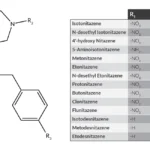
by C. Scott McMillin | Mar 31, 2025 | 0 |

by C. Scott McMillin | Jan 30, 2025 | 0 |

by C. Scott McMillin | Nov 7, 2024 | 0 |

by C. Scott McMillin | Jul 29, 2024 | 0 |
by C. Scott McMillin | Jul 14, 2025 | 0 |
The big players merge with or acquire local brands, then aggressively lobby politicians to restrict (or even prohibit) competition from independent businesses.

by C. Scott McMillin | Jun 16, 2025 | 0 |

by C. Scott McMillin | Jun 2, 2025 | 0 |

by C. Scott McMillin | Apr 7, 2025 | 0 |
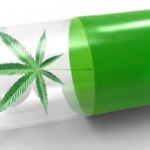
by C. Scott McMillin | Mar 10, 2025 | 0 |
by C. Scott McMillin | Jul 10, 2025 | 0 |
To date, we continue to lack a widely- used, effective roadside method for detecting cannabis impaired driving.

by C. Scott McMillin | Jul 3, 2025 | 0 |

by C. Scott McMillin | Jun 23, 2025 | 0 |
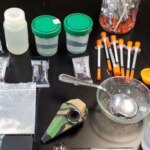
by C. Scott McMillin | May 29, 2025 | 0 |

by C. Scott McMillin | May 26, 2025 | 0 |
by C. Scott McMillin | May 8, 2025 | 0 |
Incarceration alone is almost never very effective— in fact, drinking may well resume the day the offender is released.

by C. Scott McMillin | Apr 10, 2025 | 0 |

by C. Scott McMillin | Mar 6, 2025 | 0 |

by C. Scott McMillin | Jan 16, 2025 | 0 |

by C. Scott McMillin | Dec 12, 2024 | 0 |
by C. Scott McMillin | Jul 10, 2025 | 0 |
To date, we continue to lack a widely- used, effective roadside method for detecting cannabis impaired driving.

by C. Scott McMillin | Jun 23, 2025 | 0 |

by C. Scott McMillin | May 29, 2025 | 0 |

by C. Scott McMillin | May 26, 2025 | 0 |

by C. Scott McMillin | May 15, 2025 | 0 |
by C. Scott McMillin | Sep 30, 2024 | 0 |
Make it a continuing effort, using strategies based in evidence, and harnessing the power of human interaction-- instead of relying on a burst of anti-drug education, however intense.

by C. Scott McMillin | Nov 30, 2023 | 0 |
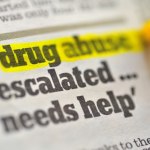
by C. Scott McMillin | Mar 18, 2021 | 0 |

by C. Scott McMillin | Mar 16, 2020 | 0 |

by C. Scott McMillin | Feb 27, 2020 | 0 |
by C. Scott McMillin | Feb 6, 2025 | 0 |
She emphasizes how much stigma is encountered by older recovering persons in the healthcare system.

by C. Scott McMillin | Jul 1, 2024 | 0 |
by C. Scott McMillin | May 23, 2024 | 0 |

by C. Scott McMillin | May 2, 2024 | 0 |

by C. Scott McMillin | Apr 25, 2024 | 0 |
by C. Scott McMillin | Jul 3, 2025 | 0 |
Many of the chronic pain patients I’ve run into suffer from both depression and anxiety, much of it related to their experience of pain.

by C. Scott McMillin | May 5, 2025 | 0 |

by C. Scott McMillin | Apr 24, 2025 | 0 |
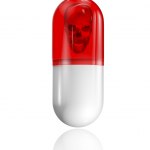
by C. Scott McMillin | Apr 21, 2025 | 0 |

by C. Scott McMillin | Mar 27, 2025 | 0 |
by C. Scott McMillin | Jul 17, 2025 | 0 |
...there solely to promote an impulse purchase of something the viewer doesn’t actually need or want. In this case, a return to drug use.

by C. Scott McMillin | Jul 7, 2025 | 0 |

by C. Scott McMillin | Jun 30, 2025 | 0 |

by C. Scott McMillin | Jun 12, 2025 | 0 |

by C. Scott McMillin | Jun 9, 2025 | 0 |
by C. Scott McMillin | Jul 7, 2025 | 0 |
...nearly as many participants experienced worsening symptoms over time as those who improved. In those cases, time wasn’t much of a healer.

by C. Scott McMillin | Jun 9, 2025 | 0 |

by C. Scott McMillin | Jun 5, 2025 | 0 |

by C. Scott McMillin | May 22, 2025 | 0 |

by C. Scott McMillin | Mar 27, 2025 | 0 |
by C. Scott McMillin | Mar 13, 2025 | 0 |
Anxious parents are seeking coverage for proven behavioral therapies and getting turned down.

by C. Scott McMillin | Oct 24, 2024 | 0 |

by C. Scott McMillin | Sep 26, 2024 | 0 |

by C. Scott McMillin | Jun 20, 2024 | 0 |

by C. Scott McMillin | Mar 2, 2023 | 0 |
by C. Scott McMillin | Jul 17, 2025 | 0 |
...there solely to promote an impulse purchase of something the viewer doesn’t actually need or want. In this case, a return to drug use.

by C. Scott McMillin | Aug 3, 2023 | 0 |

by C. Scott McMillin | Dec 22, 2022 | 0 |

by C. Scott McMillin | Jun 9, 2022 | 0 |
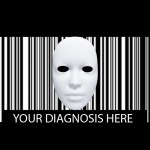
by C. Scott McMillin | Jan 20, 2022 | 0 |
by C. Scott McMillin | Jun 30, 2025 | 0 |
Whether it’s a community meeting, a political demonstration, or just knocking on doors in the neighborhood, our presence helps to make a difference.

by C. Scott McMillin | Jun 12, 2025 | 0 |

by C. Scott McMillin | Jan 3, 2022 | 0 |

by C. Scott McMillin | Oct 18, 2021 | 0 |

by C. Scott McMillin | Sep 16, 2021 | 0 |
by C. Scott McMillin | Mar 5, 2020 | 0 |
In fact, in many instances, the trauma that occurs after they’re addicted is more damaging than what happened before.
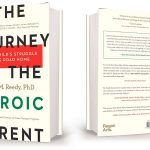
by Brad Reedy | Dec 10, 2018 | 0 |

by Jason Hyland | May 21, 2018 | 0 |
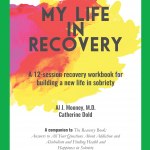
by Catherine Dold | Feb 23, 2017 | 0 |
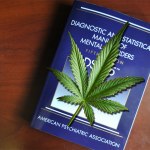
by C. Scott McMillin | Nov 14, 2016 | 1 |
by C. Scott McMillin | Mar 5, 2020 | 0 |
In fact, in many instances, the trauma that occurs after they’re addicted is more damaging than what happened before.

by Brad Reedy | Dec 10, 2018 | 0 |

by Jason Hyland | May 21, 2018 | 0 |

by Catherine Dold | Feb 23, 2017 | 0 |
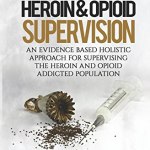
by Miller VanFossen | Jun 27, 2016 | 0 |
by C. Scott McMillin | Nov 14, 2016 | 1 |
It certainly makes sense that if you suffer from a major mental illness, you should stay away from pot.

by C. Scott McMillin | Jul 14, 2014 | 0 |

by C. Scott McMillin | Jul 7, 2014 | 0 |


by C. Scott McMillin | Jun 18, 2013 | 4 |
People have abused opiates for 5,000 years. As much as medicine depends on them, they've always created problems for a percentage of users.